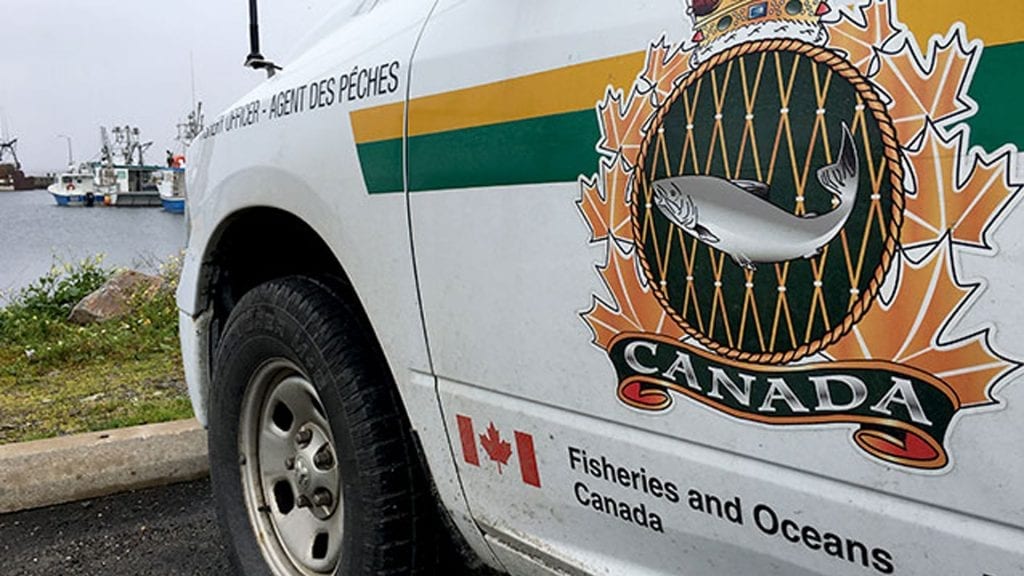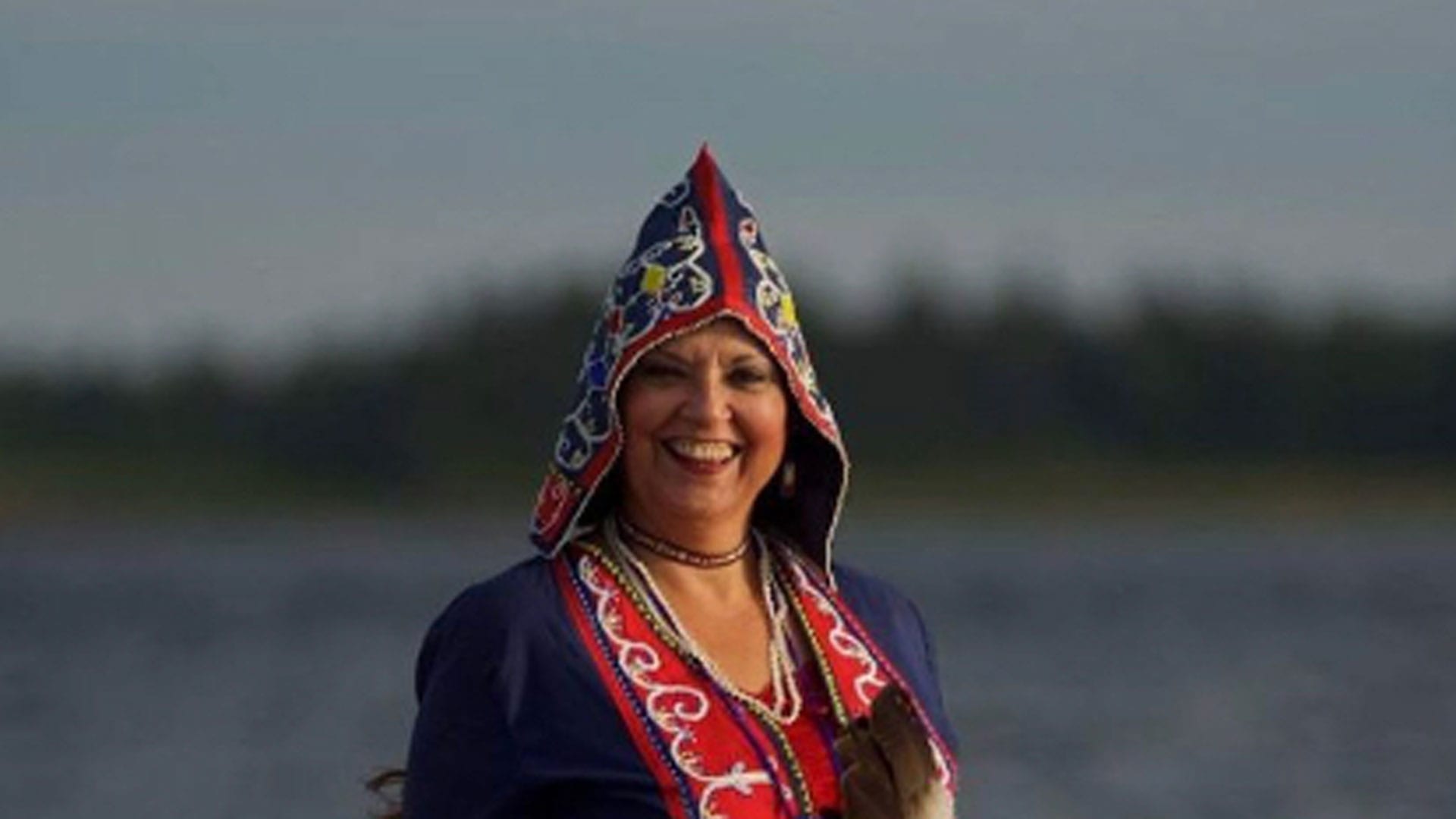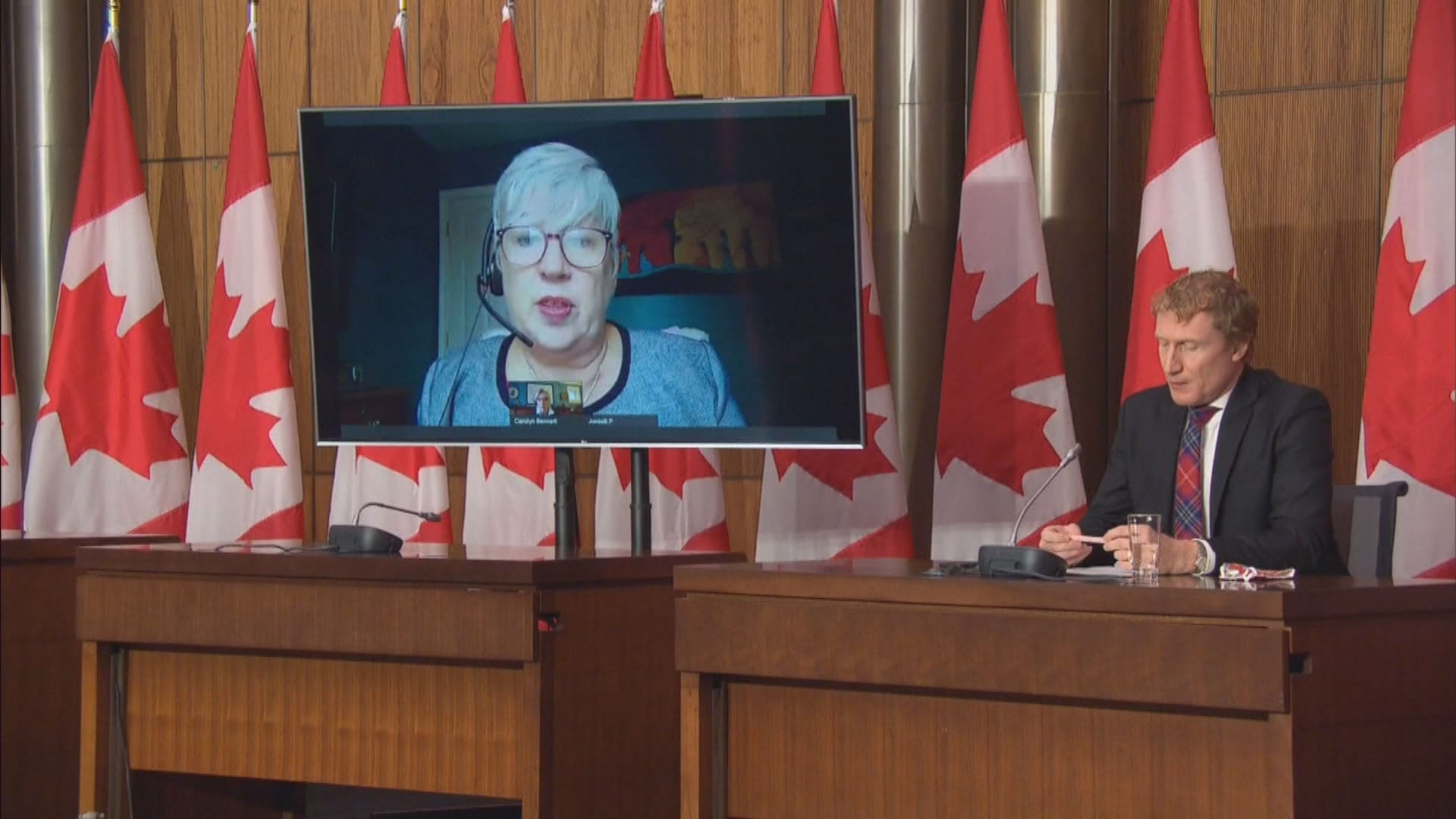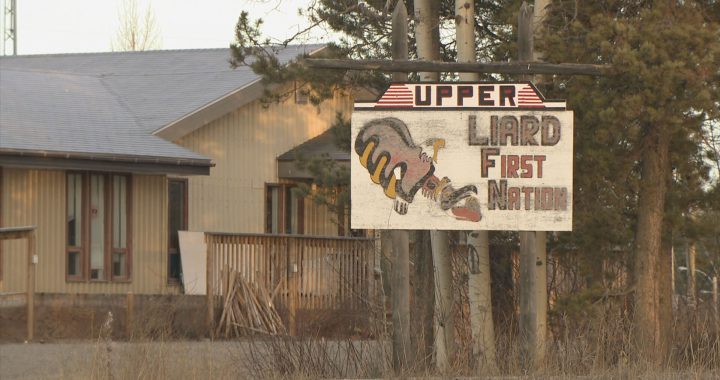
DFO has signed Rights Reconciliation Agreements with three Maritime First Nations but many more refused the deals. Photo: Trina Roache/APTN
While Mi’kmaw leaders want Ottawa to acknowledge their sovereignty and governance over rights-based fishing operations, a Department of Fisheries and Oceans (DFO) briefing document released through access to information laws suggests the minister remains in “listening mode” with little more to offer communities than largely-rejected Rights Reconciliation Agreements.
“We rejected it right off the get go,” said Chief Darlene Bernard of Lennox Island, one of two Mi’kmaw First Nations that plan on launching their own rights-based moderate livelihood fishery in P.E.I.
Rights Reconciliation Agreements essentially offer a cash envelope and access to the existing commercial fishery. But there’s a catch: First Nations can’t implement their treaty rights for the duration of the deal.
“They’re very much prejudicial to our rights, these agreements,” said Bernard. “We’re signing away rights if we go into those agreements for specific amounts of time.”
DFO adopted this approach in 2017 when then Minister Dominic LeBlanc appointed J.B. (Jim) Jones as lead federal fisheries negotiator tasked with advancing talks with First Nations in the Maritimes and Quebec.
Bernard says the Jones deal wasn’t something she could sell to her community. They want Ottawa to sit down in good faith and implement the spirit of the Supreme Court’s 1999 Marshall ruling, which affirmed the Mi’kmaq treaty right to sell fish in pursuit of a moderate livelihood.
“There was no negotiation, true negotiation. It was just an envelope that was put in front of us, take it or leave it,” she said. “So, to me, the mandate has to change and I don’t think that DFO should have the mandate to negotiate anyway. It should be the mandate of the minister who’s responsible for the rights portfolio of the federal government, which would be Carolyn Bennett.”

Three Mi’kmaw parliamentarians in Ottawa echo this demand as they continue to advocate for a new approach based on Mi’kmaw law, governance and shared jurisdiction.
“The DFO Jim Jones negotiating process in place for over three years now has not yielded a single productive thing in Nova Scotia other than to bring entirely legitimate grievances to a boiling point,” said Sen. Dan Christmas in a letter to Chief Terry Paul, fisheries lead for the Assembly of Nova Scotia Mi’kmaw Chiefs.
“These are merely interim agreements that do absolutely nothing to define moderate livelihood nor a governance framework acceptable to the Mi’kmaq around it,” he wrote. “The Jones process and all it seeks to achieve in no way accommodates our requirement for Mi’kmaw governance around the critical issue of moderate livelihood.”
Christmas, Liberal MP Jaime Battiste and Sen. Brian Francis, who are all Mi’kmaw, propose instead an Indigenous-led co-management regime through the creation of an Atlantic First Nations Fisheries Authority.
“We think that’s a very positive way forward, and it’s an option that those First Nations that want to go into it could go into it, and those that don’t could go on their own basically. We feel that would ensure that the Marshall decision is upheld fairly and equitably,” Francis said in an interview with APTN.
Read More:
The irony in Canada’s new deals to reconcile fishing rights 20 years after the lobster wars
What’s really behind the lobster fishery tensions in Nova Scotia
Francis and the other parliamentarians say this proposed governance authority would operate under a traditional Mi’kmaw legal order known as Netukulimk, a centuries-old approach to sustainable harvesting.
While Bernard didn’t remember how much cash was on their table, the Nova Scotia chiefs say DFO offered them $86.6 million over 10 years and access to the existing fishery through banked licences. But it also required them to sideline rights-based fishing for a decade.
They rejected the offer and support the parliamentarians’ proposals instead, according to an Oct. 19 release.
On Oct. 23, Minister Bernadette Jordan appointed Allister Surette as federal special representative to mediate between Mi’kmaw and non-Mi’kmaw fishers.
Surette has experience with fisheries disputes and is from West Pubnico, N.S., where a facility storing a Mi’kmaw catch was burned down and attacked by a mob in October.
“The right to fish in pursuit of a moderate livelihood is a right stemming from the 1760-61 Peace and Friendship Treaties, reaffirmed by the Supreme Court of Canada under the Marshall Decision,” said a government release. “The Government of Canada is dedicated to implementing this right.”
It’s not clear whether DFO will keep pushing the reconciliation agreements or not.

APTN requested interviews with DFO several times since the Sipekne’katik First Nation launched its rights-based fishery on Sept. 17. None were granted.
APTN also contacted Jones directly. He forwarded our request to DFO communications who did not reply.
A briefing note that DFO prepared for the minister in September has Rights Reconciliation Agreement listed as the minister’s number one objective prior to a meeting with Chief Paul, though other details are significantly redacted.
“Your overall objective in this follow-up call [with Paul] is to be in listening mode, to continue to express willingness to collaborate on the way forward, and to recognize the work that is ongoing in their communities,” said the document.
The unredacted portions do not mention the constitutionally-protected right to fish but twice urge the minister to stress that those fishing outside the DFO rules will be subjected to conservation enforcement.
“It should be emphasized that any moderate livelihood fishing not licensed by the Department is viewed as unauthorized and subject to enforcement actions based on the Conversation and Protection (C&P) protocols.”
As more First Nations set their own self-authorized traps, this is exactly what happened. The Assembly says DFO plans to seize livelihood traps and has already taken 200 from Potlotek and Eskasoni harvesters.
In an Oct. 23 statement, the chiefs accuse Canada of negotiating in bad faith and suggest politicians and conservation officers aren’t on the same page, which is causing talks to sour.
“Discussions with DFO have broken down, and that is no fault of the Mi’kmaq. We have attempted to work Nation-to-Nation, but the Federal Government refuses to look beyond their colonialized approach,” said Paul. “They have not recognized our Supreme Court affirmed Right for over 21 years, and it has now become clear that they have no intentions of seeing the Mi’kmaq exercising our Constitutionally affirmed Rights.”
But the Mi’kmaq aren’t backing down.
Bernard says Lennox Island hopes to launch their fishery in the spring.
“The Mi’kmaq are going to exercise their right to a livelihood fishery,” she said.
“They’re going to do it.”










